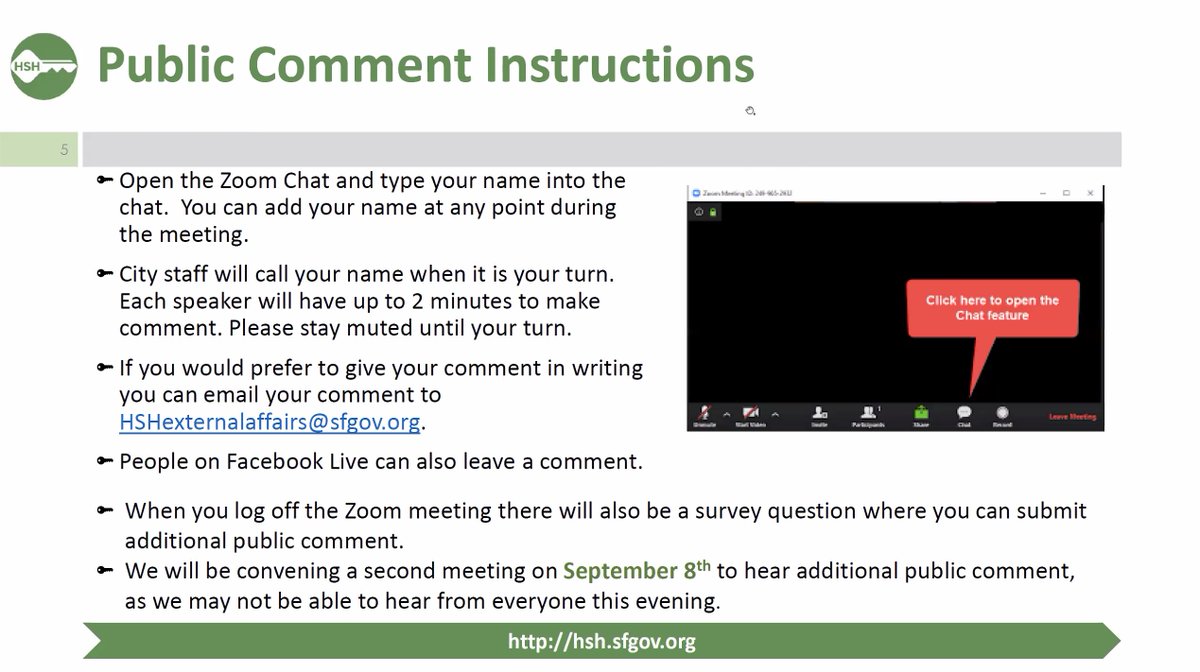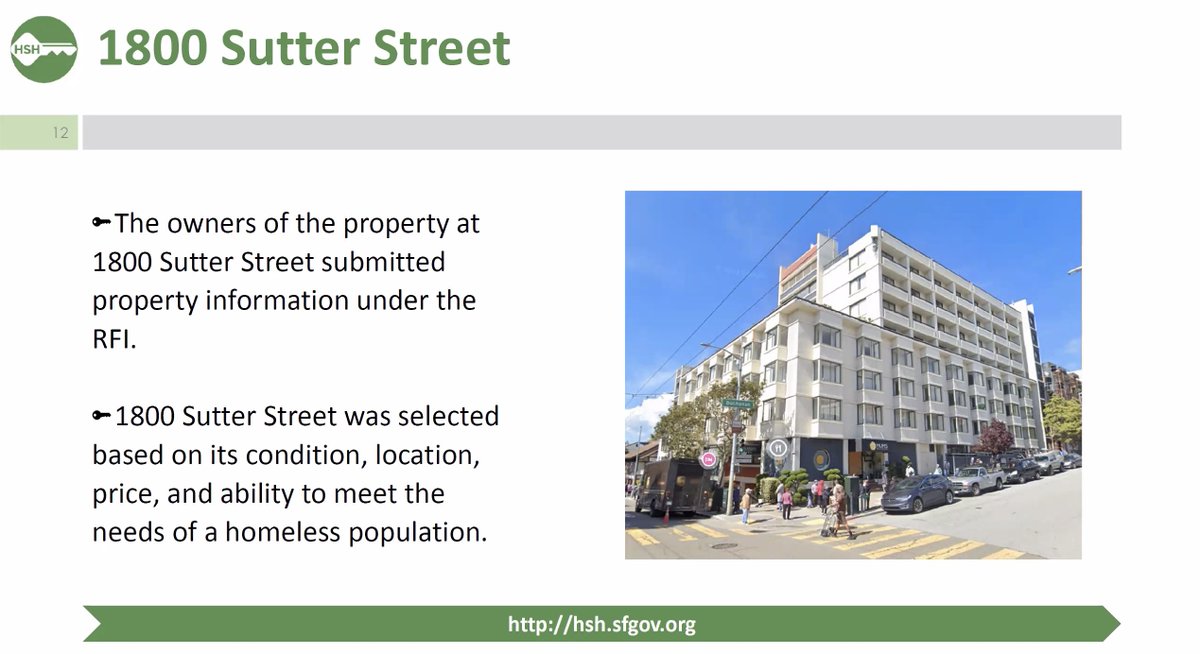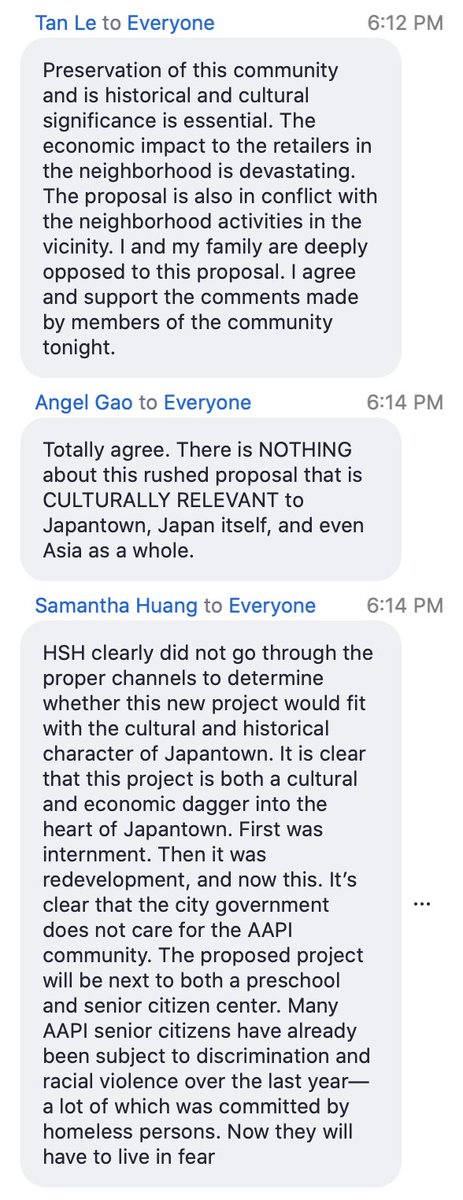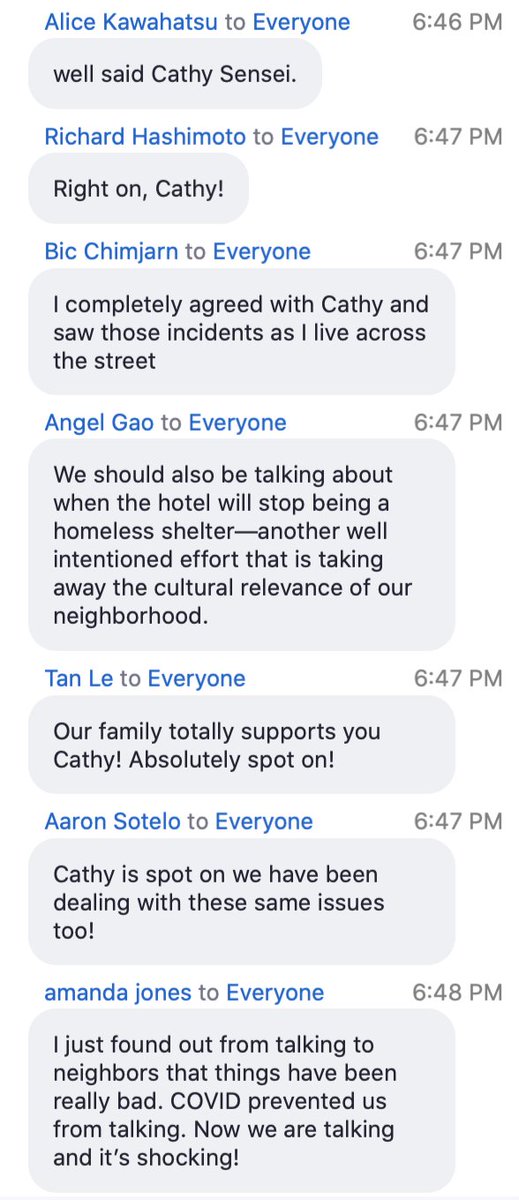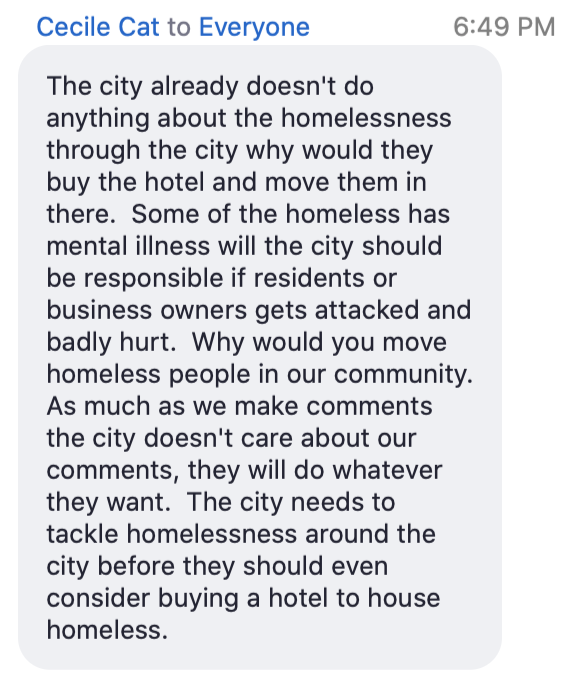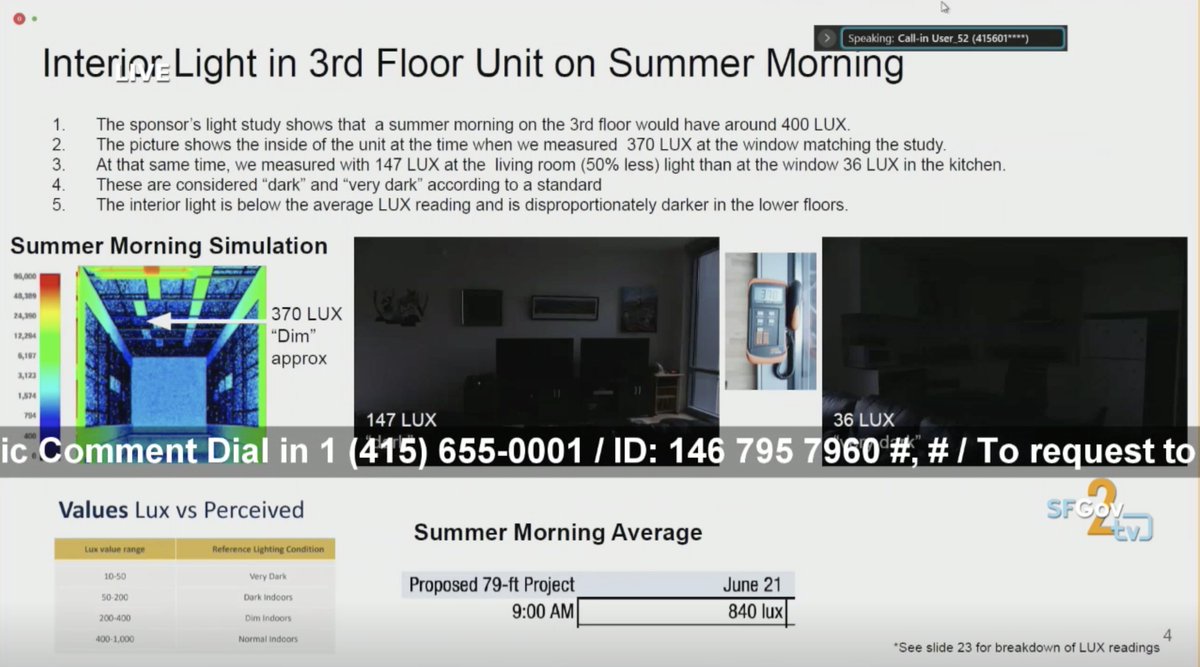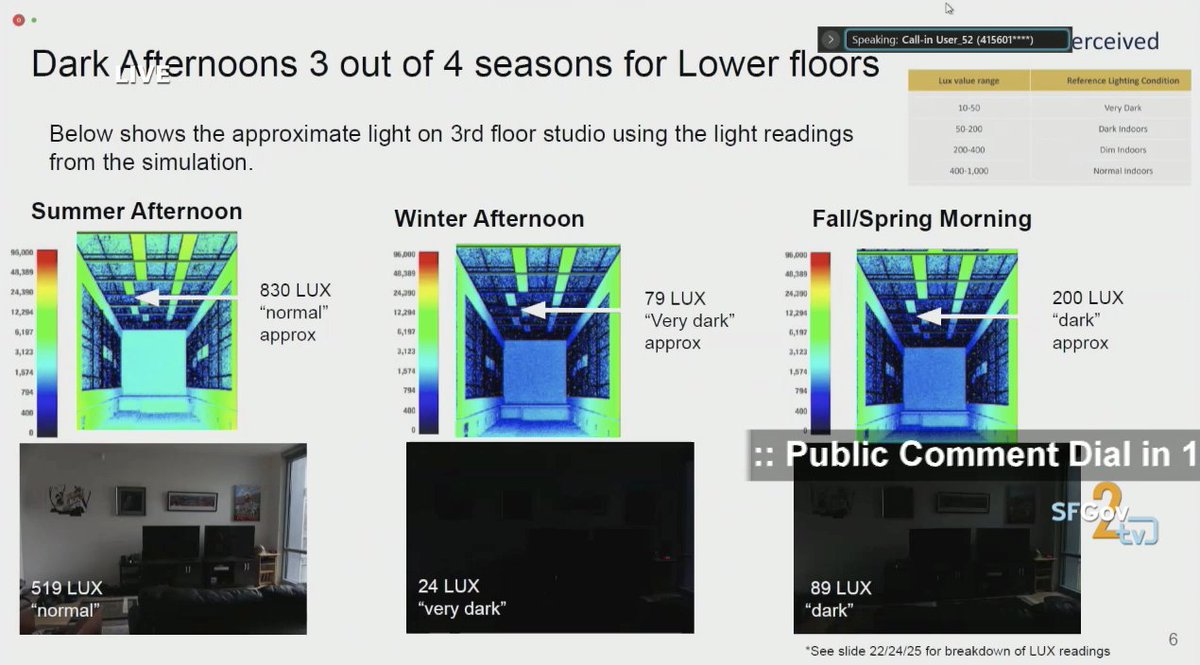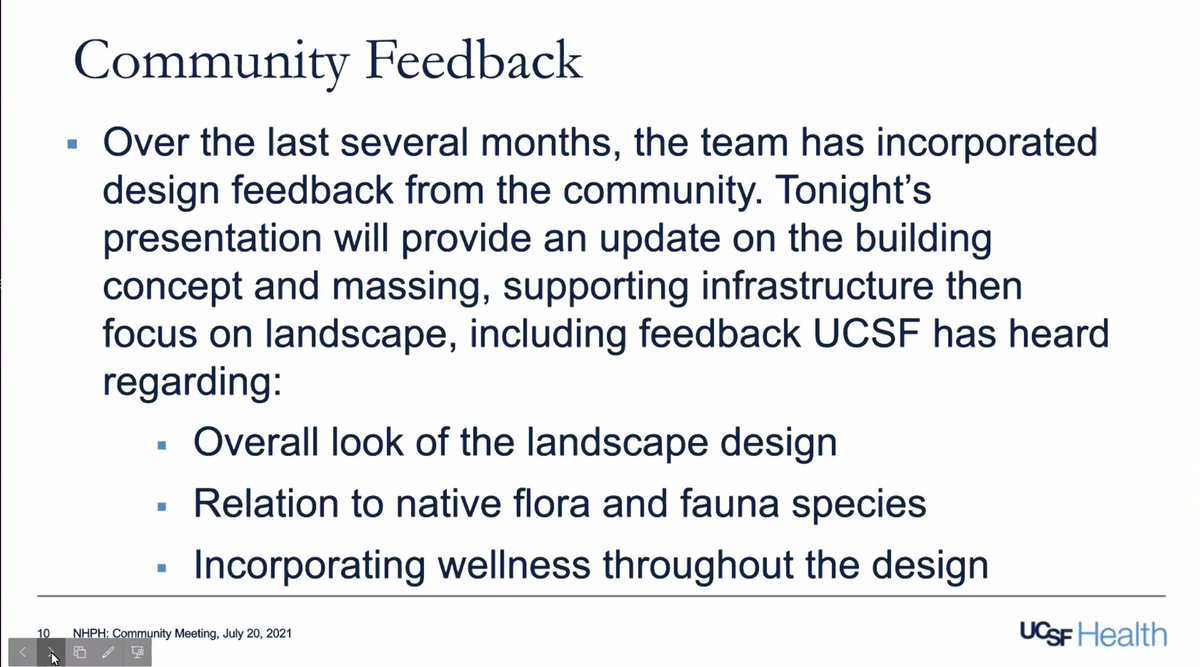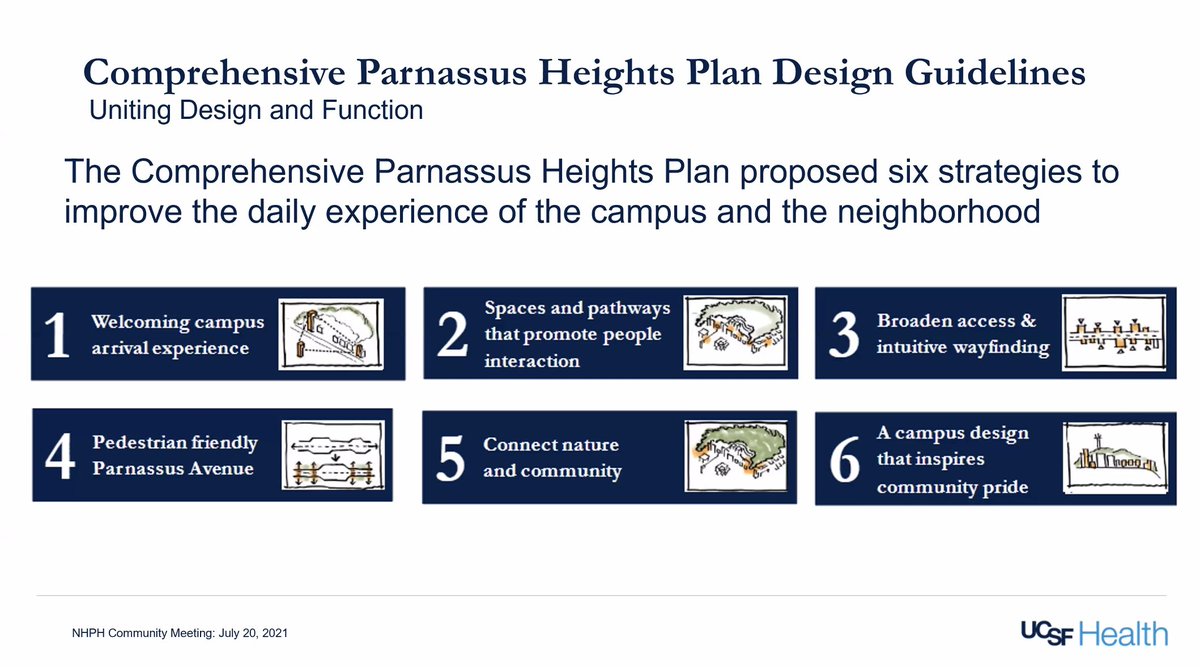
Hello San Francisco. I'm attending a community meeting hosted by the SF Department of Homelessness and Supportive Housing. HSH is proposing to buy the Buchanan Hotel in Japantown (District 5) and covert it to 131 units of permanent supportive housing. 

There is already some opposition. The Japanese Cultural and Community Center of Northern California released a statement which read, in part, "It’s unconscionable for the [seller] to put Japantown in the middle of the homeless program debate." rafu.com/2021/08/jcccnc…
Instructions for language interpretation are being given in Chinese, Spanish, Japanese, and Tagalog. 
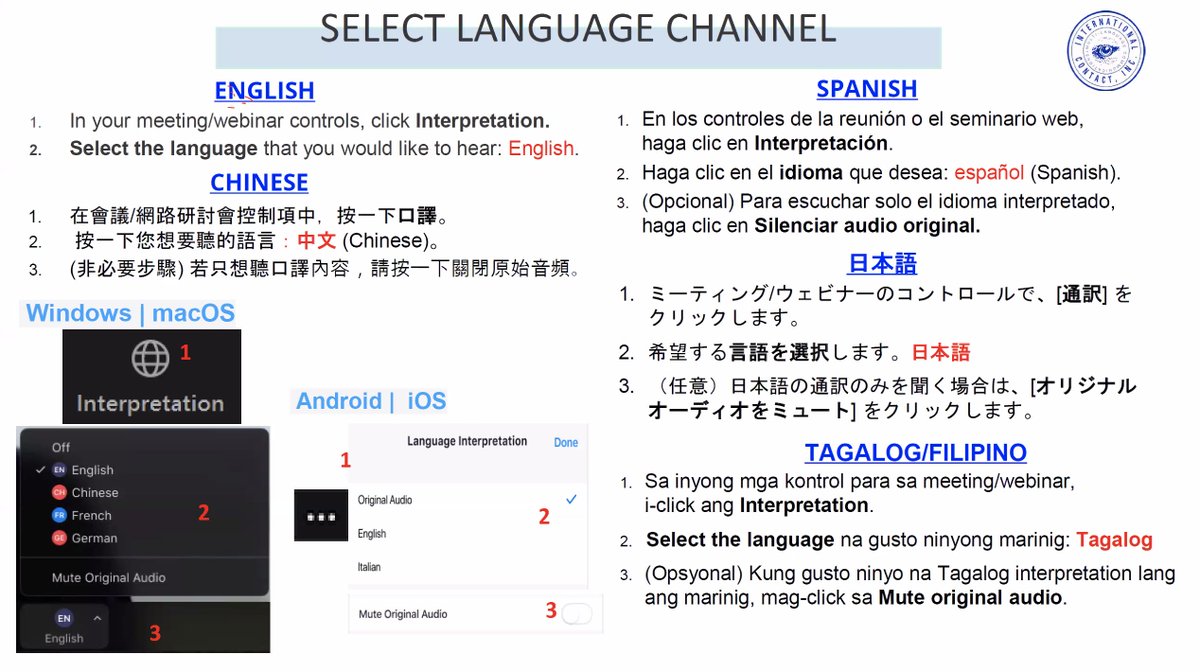
Deborah Bouck from HSH says that the Zoom meeting is full. I see 325 participants. The presentation has yet to start, but there are easily 100 comments in the chat from attendees who would like to give public comment.
According to the list of participants, Supervisor Dean Preston is here.
HSH Director McSpadden is speaking. She says that we already know we'll have another community meeting, to allow more people to comment. She thanks everyone for their interest and "very clear concern" about what the City is planning to do.
Dir. McSpadden: "We want to make this a real listening session."
She says she respects the Japanese community's concerns about "losing out on the cultrual district and some of the commerce that takes place in the community."
She says she respects the Japanese community's concerns about "losing out on the cultrual district and some of the commerce that takes place in the community."
McSpadden says that this is one of four projects to buy hotels. "We're trying to create geographic equtiy by acquiring hotels across the City.... We have had conversations with the owners of the hotel... but now we need to hear from all of you."
McSpadden is introducing Deputy Directory Emily Cohen.
Cohen says she appreciates how many people have turned out. She'll talk briefly and share slides, and then make this a listening session.
Cohen says she appreciates how many people have turned out. She'll talk briefly and share slides, and then make this a listening session.
Deputy Director Cohen also notes that this meeting is being livestreamed on Facebook, where comments can also be left. And a second meeting will be held on September 8.
facebook.com/SanFranciscoHS…
facebook.com/SanFranciscoHS…
Cohen: "We have an affordable housing crisis in our community."
She says the City shelters/houses over 14K people daily, but there need is greater than that.
She says the City shelters/houses over 14K people daily, but there need is greater than that.
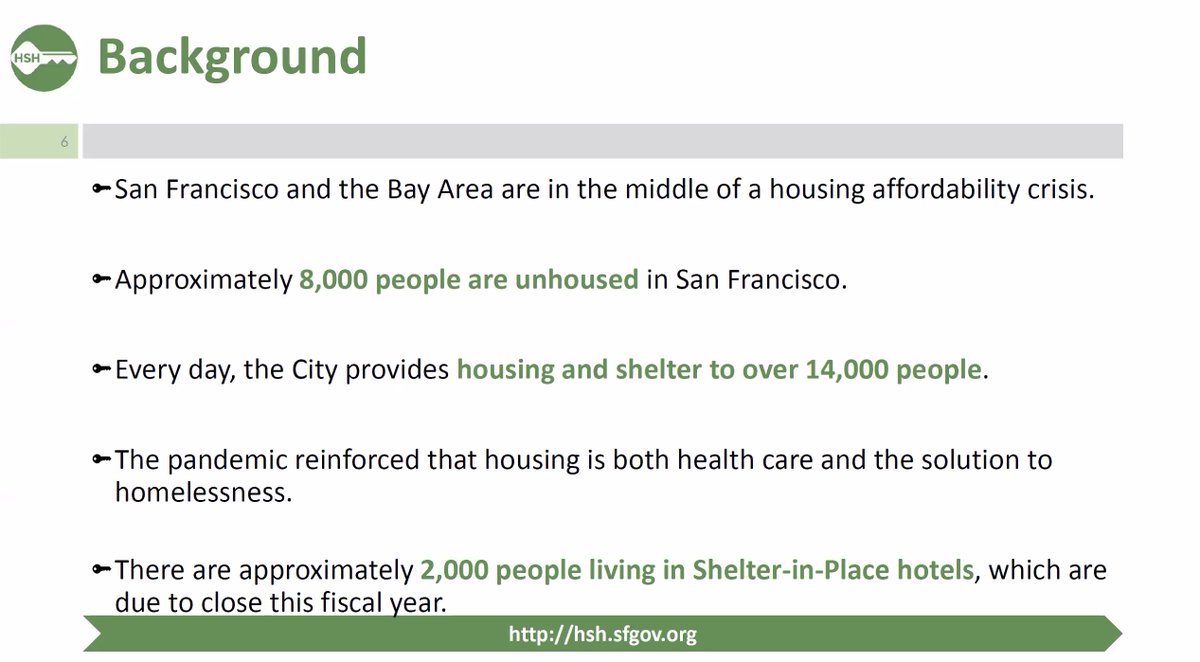
Cohen: By buying hotels, we can buy much-needed housing quickly and more affordably than starting from scratch. 
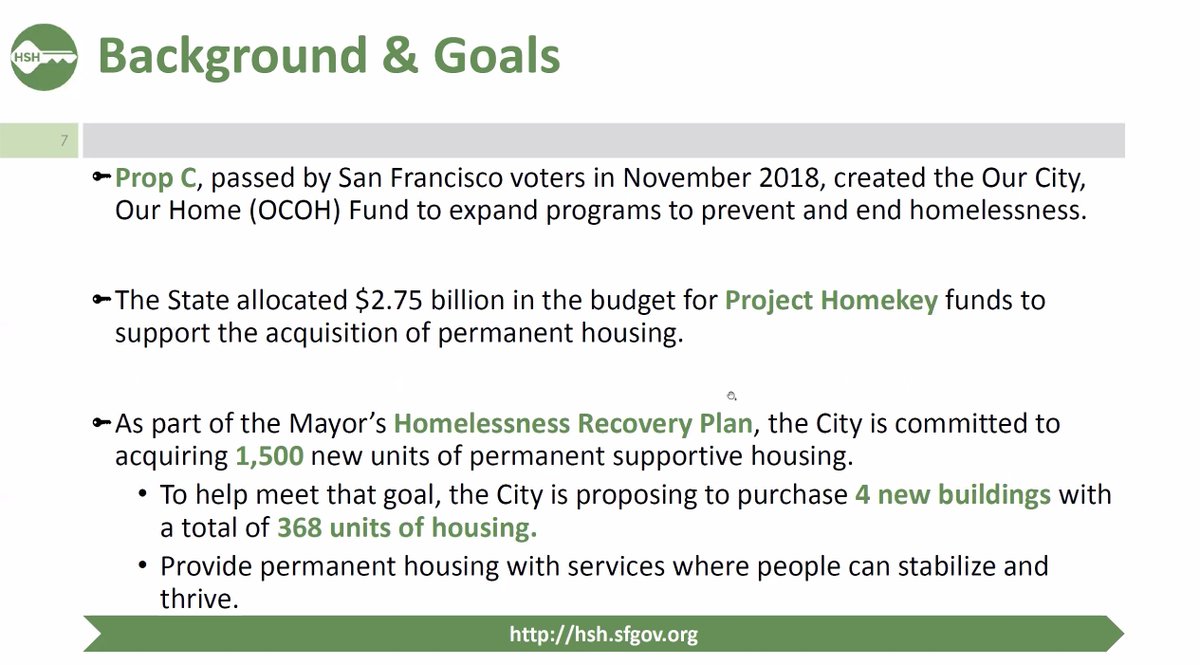
Cohen: Permanent supportive housing helps people integrate into the community. It is not shelter—it is long-term homes. 
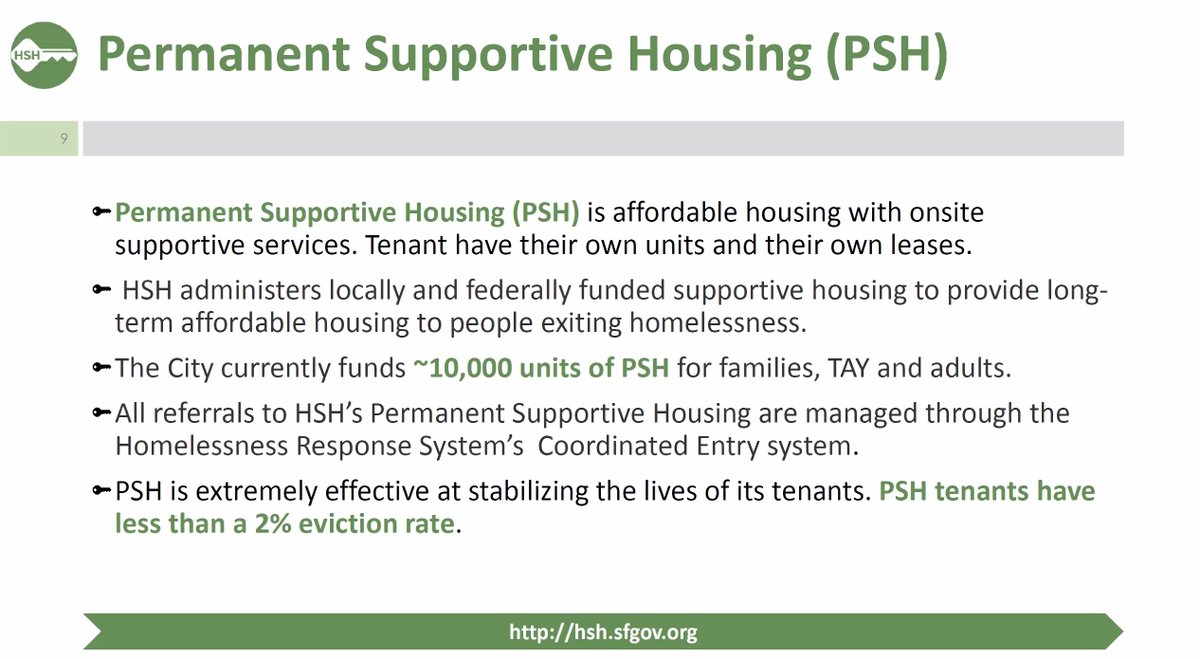
Cohen: "I want to reiterate that this project is not for a homeless shelter."
Deputy Director Cohen is now describing a client who was accepted into a shelter-in-place hotel and now lives in long-term supportive housing.
Deputy Director Cohen is now describing a client who was accepted into a shelter-in-place hotel and now lives in long-term supportive housing.

Cohen: The Buchanan Hotel at 1800 Sutter Street has characteristics that are good for conversion to housing, like private bathrooms, a high quality building, and proximity to public transit. It's currently a shelter-in-place hotel. 

Cohen repeats that a second meeting will be held on September 8. "This is not a done deal. This has not been decided upon... We are in the early stages."
An operator and service provider will also be selected.
An operator and service provider will also be selected.
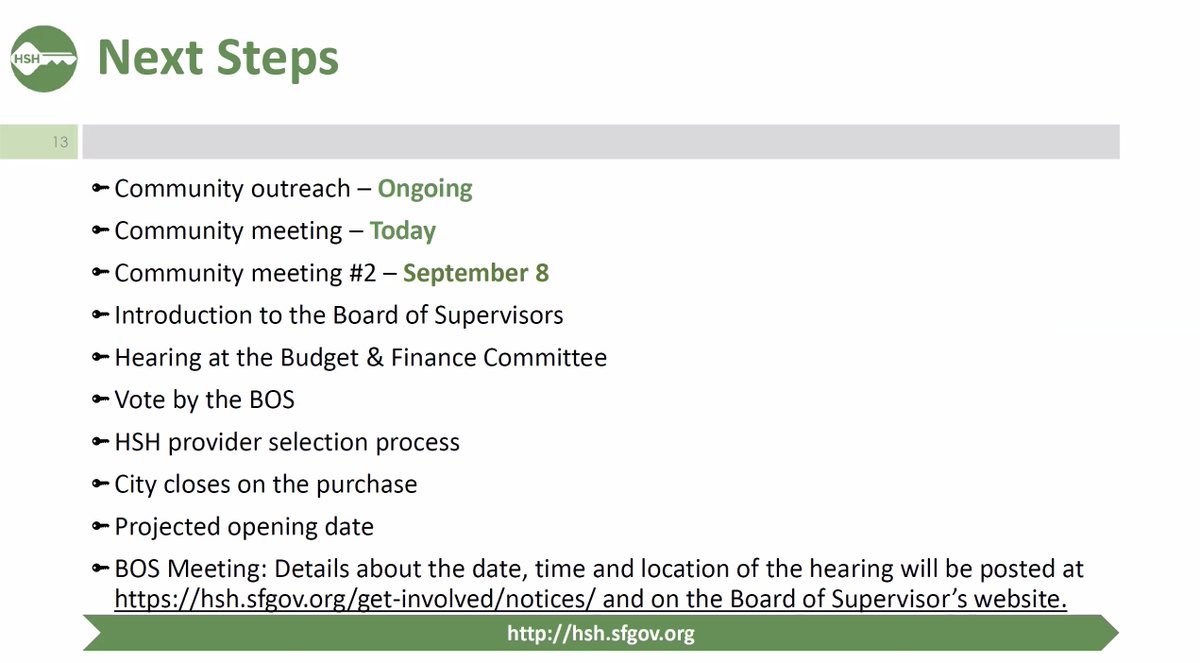
Deputy Director Cohen confirms that Supervisor Preston is here to listen to feedback. Captain Yep from SFPD is also listed. 
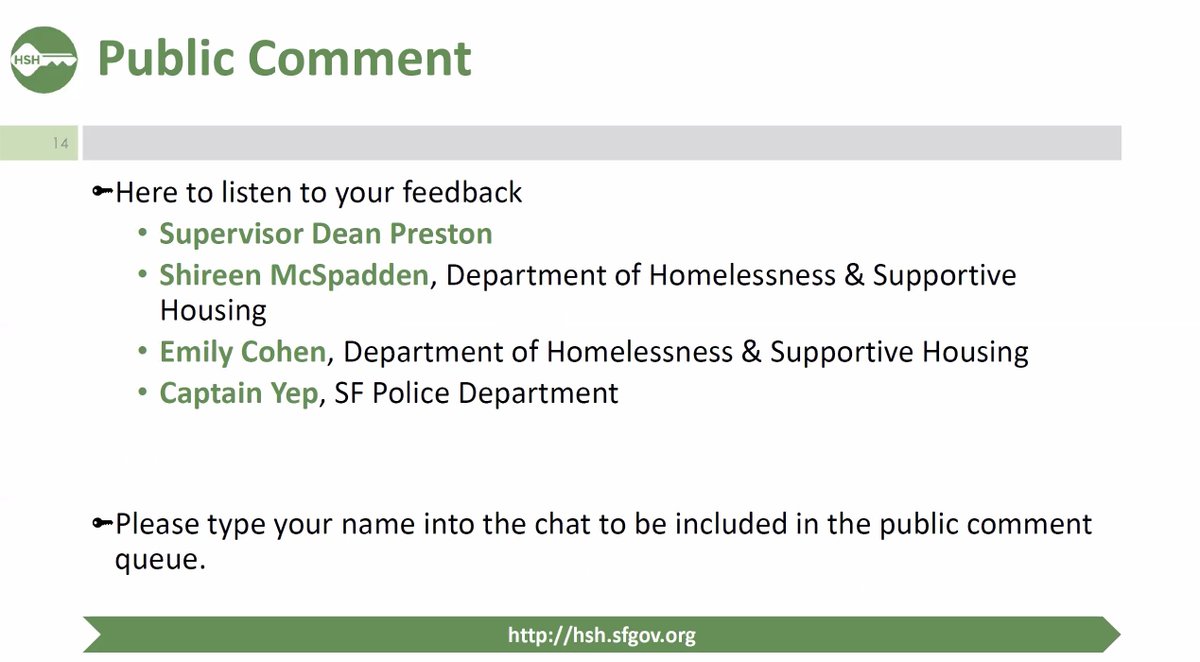
Cohen is thanking Japantown community leaders for their thoughtful guidance and feedback.
Now begins the bloodbath—that is, Q&A.
We're having some technical difficulties. All the interpreters are currently on the English channel, so all the interpreters can be heard at once.
Speaker 1 says she's a 3rd generation Japanese American and resident of District 9. She says the Japanese cultural district was established to protect Japantown.
Speaker 1 is asking if the change of use will require Planning Commission approval, and if it's compatible with the integrity of cultural/neighborhood character.
Speaker 1 is reading a Planning Commission resolution apologizing for discrimination against communities of color and asking if this supportive housing is consistent with their promise to do better.
Speaker 2 is a 3rd generation Japanese American and a property owner in Japantown. "I am opposed to the current process we're discussing... The process appears and feels to be moving very fast."
They say the closure of 1 of 2 tourist hotels will have an economic impact.
They say the closure of 1 of 2 tourist hotels will have an economic impact.
Speaker 3 is an SF resident, born and raised. She's a Public Library Commissioner. She lives in Japantown. "Do not destroy Japantown again, like what happened in the 60s with redevelopment... Do not sell Hotel Buchanan."
Speaker 4 is Judy Hamaguchi on the Board of Japanese American Citizens League San Francisco Chapter. She lived here before redevelopment. Japantown has been reduced to four blocks. "Now we find that we have to go through another battle to save what's left of... our culture."
Hamaguchi says Japantown is being asked to choose between its community and its humanity. "Stop the sale."
Speaker 5 is a resident of D2. They say that their financial calculations show that the sale of the hotel would result in spending losses of $13.2M in Japantown. Small businesses that survived the pandemic do not deserve to be punished by City actions.
They say that City money should not be used to cushion the exit of the private equity firm that bought the hotel. "I'm deeply disturbed by the callousness of public policy approaches that pit the needs of one marginalized group against another."
Speaker 6 is a 3rd gen Japanese American, longtime resident of Japantown for 35 years. "I am first of all surprised that I did not get a notice in the mail. I found out through one of my community meetings."
Speaker 6 says this sale will take away from the tourists and guests. "The hotel has provided, for many years, a place for guests [from Japan]."
"Permanent means permanent. That means nothing can be changed once the City buys this hotel."
"Permanent means permanent. That means nothing can be changed once the City buys this hotel."
Speaker 6 worries that the hotel will eventually be knocked down to build a high rise.
Speaker 7 is Richard Hashimoto w/ Japantown Merchants Association, concerned about loss of business. The association believes the hotel contributes over $2 million to the Japantown economy. The pandemic caused many merchants to close permanently.
Hashimoto: "We have nothing against the homeless or housing the homeless... but the sale of the hotel would take away the livelihood of our merchants."
He says he remembers redevelopment. "You should be ashamed of yourself at even considering this site."
He says he remembers redevelopment. "You should be ashamed of yourself at even considering this site."
Speaker 8 is Jon Osaki, Executive Director of Japanese Community Youth Council. "The sad reality is that placing a permanent supportive housing site next to a childcare center is putting that place in jeopardy... That is not being anti-homeless."
Osaki: "I know for a fact that if there were a permanent supportive housing site next door to my center, that would make some families think twice" about enrolling their children.
Speaker 9 takes their children to school in Japantown and lives in Bayview. "This proposed facility is directly next to the pre-school, no buffer whatsoever." They say the teachers are picking up needles and human waste.
Speaker 9 says that two weeks ago they took shelter at the school because a man followed them and shouted racial profanities at them. "The City should not buy a hotel next to a pre-school." The parent sounds exasperated.
Speaker 9: "I'm speaking up for the 100 kids who do not have a platform... Please, please do not do this."
Speaker 10 is Steve Nakajo, Executive Director of Japantown Task Force. "This plan does not fit within the cultural district aspects... in the remnants of redevelopment... The change of use does not fit within this concept."
Speaker 11 is an SF native. They are family of kids who go to Nihonmachi Little Friends. The one-month process to buy the hotel is not enough. "We are being pigeonholed into a binary" of being against the homeless or for the homeless.
Speaker 11: All people have the right to housing, as long as the process treats everyone involved with dignity. Japantown is based on tourism.
Speaker 12 is a 5th gen SF resident, member of Nikkei Resisters, and they believe that housing is a human right. Conversion of the hotel into housing is a way to build the Japantown of tomorrow. They want the City to develop a holistic approach to housing in Japantown.
Speaker 12 sees this as a way to right some of the wrongs of redevelopment. "We should actively working to make sure all of our community is housed." They ask that the City work with Japantown to commit to holistic services and partnerships.
Speaker 13 thanks the City for tackling the homeless problem. Everyone on this call wants to work together as a community. It is clear from the public backlash that this is not the right use of funds. 1,000s of people have signed a petition against it. They agree with that.
Speaker 13 says their opposition is based on the lack of information. "This hotel is a nice property in a highly valued area." Will this project help as many people as possible?
Speaker 14 is a 3-decade resident of Japantown. "I acknowledge need for the dispersal of more supportive housing throughout the City." But the hotel would not support reparations. Excess CPMC hospital rooms should be used instead.
14 says this hotel purchase "risks destruction of an existing set of fragile people." The hotel itself was always planned to serve tourists, the economic foundation of this community.
Speaker 15 is a Japantown resident who lives 3 blocks from the hotel. There are legitimate concerns about this, including the technical issues. They want to hear more but support the project. "SF should be a place for all... I'm hearing a lot of fear about [homelessness]."
Speaker 16 is David K Takashima, has lived in SF for 20 years and is active w/ a lot of Japantown non-profits. They've worked in govt relations for 40 years. Deputy Director of Department of Finance.
Takashima says they worked on cannabis regulations in SF. One req was that you had to be so many yards distance from a childcare facility or schools. He says this is a problem that needs to be investigated going forward.
Takashima: "Why do you look at tourist hotels as a good thing to take out of a community?" They say that these regulations with purpose to take out Buchanan Hotel.
Speaker 17 is Susie Kagami, Japantown Cultural District manager. She's talking about how she raised her son in Japantown. He's in high school. Nihonmachi Little Friends takes care of dozens of kids. The community center is two doors down.
Kagami says that when the City took over the hotel during the pandemic, they were cautious but compassionate. Then residents started throwing things out balconies, and the manager would take needles and feces off the street. People are afraid to pass that area.
Kagami: "The City failed to take care of that special corner."
Speaker 18 is Tomo Hirai. He declines to speak, saying he's with the press.
Speaker 19 is Jeremy Chan w/ Japantown for Justice. "The City is silencing our community... I believe housing is a human right... the current process is a far cry from that world... How can we trust that the new provider will consider themselves part of the Japantown community?"
Speaker 20 is a resident within 200 feet of the project, moved there in 2006. They picked it because there's nothing like it. When you go out your door you know you're in SF.
Speaker 20: "There are many people that want to invest in San Francisco." They've spoken to investors interested in the hotels. "There are more empty open units in other parts of the City."
Speaker 21 is Mary Ishisaki, a property owner in the Buchanan Mall and resident of D5. She serves on many boards. Many businesses have struggled to pay rents. "To sell this hotel to the City would sign businesses out of the neighborhood."
Ishisaki says her husband lost her business during redevelopment. She still has a certificate of preference, "worth less than a lot of toilet paper you see on the street."
Speaker 21 is Cathy Inamasu, ED of Nihonmachi Little Friends. Unfortunately having this hotel as housing "immediately attracted more homeless," and it caused more garbage and needles.
Inamasu says the health and safety of the seniors is threatened by people with mental health and alcohol issues. The managers don't take care of issues outside the hotel. There's no support. There's a disconnect with the community.
Inamasu says the community only tolerated the hotel because they knew it was temporary. Now community concerns must be addressed.
Speaker 22 is Japantown Community Benefit District ED Grace Horikiri. Staff at the hotel would lose their jobs, and many legacy businesses would not be able to hang on w/o the hotel. And the community worries about backlash from raising their voices.
Speaker 23 is the employee of a small family company that owns a building in Japantown. Their tenants are not property owners but have invested in making Japantown great to visit. The City has no budget to secure property it owns. The Buchanan Hotel should stay a hotel.
Speaker 24 says their family has operated a business in Japantown since the 60s. They urge the City to reconsider. This is a historic mistake.
Speaker 25 has been working at Nihonmachi Little Friends for over 20 years. One time a man covered himself with white bedsheets from the hotel and blocked the childcare facility entrance. The man yelled profanities and held a screwdriver. Parents were scared.
Speaker 25 says that SIP hotel residents drive their cars out of the hotel at unsafe speeds and have almost hit seniors.
Speaker 26 is a 2nd gen SF resident and D8 resident. They were a psych nurse at SF General for decades. Converting the hotel would cause loss of jobs and revenue. Hotel taxes fund the City's grants for the arts. Guests at an SRO don't pay hotel tax.
Speaker 26 says those in HSH know the history of incarceration and redevelopment in Japantown. "We can have both housing for the homeless that wouldn't have the economic impact of selling the hotel."
I just spoke in support of the project.
Speaker 28 has grown up over the past 30 years. They say their support affordable housing and it hurts to hear people call the City gross. The City is magically weird. It's important to have affordable housing. But the lack of transparency is too much.
Speaker 29: If this was going to be proposed, there should have been a lot more transparency. "It's so similar to what's happened with the gentrification in this neighborhood." This location is right next to a grocery store and pre-school.
Speaker 30 has had an optometry practice across the street from the hotel. "The City has asked us to deal with a lot of ups and downs over the years." Now it seems like the City wants to take away a hotel where tourists stay. This plan doesn't make any sense.
I have to hop off the call for now. I have another engagement to attend, and this meeting is starting to give me a headache.
• • •
Missing some Tweet in this thread? You can try to
force a refresh


